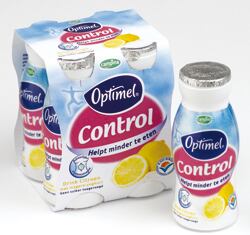They concluded that non-textual marketing carried more weight with Dutch consumers for the product formulated with DSM’s ‘Fabuless’ palm and oat oil emulsion – rejected in 2011 under the European Union nutrition and health claims regulation (NHCR).
“Regulatory void”
Because visual marketing is not being strictly enforced by the 2006 NHCR, authorities needed to engage broader unfair commercial practice laws to scrutinise image-oriented marketing of non-authorised ingredient and product claims in the EU.
There is, “a regulatory void” between the two legal frameworks, they said.
“At present however national consumer authorities – which are empowered to initiate actions in case of unfair practices – do not seem to give much priority to addressing misleading marketing of functional foods,” wrote Herman Lelieveldt and Chris Boonen from the University College Roosevelt Academy and Leiden University respectively.
“It could very well be the case that they feel that consumers are sufficiently protected by the [NHCR] and the [European Food Safety Authority’s] evaluation practices, but this protection is insufficient.”
“As long as producers skilfully market their products using a wide array of non-textual marketing techniques and as long as these practices remain unchallenged at national level, consumers will try and buy these products and only learn about their ineffectiveness after having spent their money on it.”
The NHCR in Article 2.1 does state that a health claim can be a, “pictorial, graphic or symbolic representation, in any form” but Lelieveldt and Boonen noted only ‘proposed wording’ under Article 16.3 was being scrutinised in practice.
They noted Article 6.1 of the European Union Unfair Commercial Practices Directive which could interpret textual, visual or any other kind of marketing as, “likely to deceive the average consumer consumer, even if the information is factually correct”.
Loss of Control
Optimel Control was launched by Campina in the Netherlands in 2006. It was ranked the third most successful food product launch in the country in 2007 and was soon after launched in Russia and Germany.
But by 2009 the product had been withdrawn from all markets due to poor sales.
It employed a ‘stay in control’ slogan and the phrase, ‘helps you eat less’ on-pack, while its website stated the yoghurt, ‘gives you a prolonged feeling of saturation’ and ‘helps you to consume between 10 and 15% calories less during the day’.

These claims were permitted as Fabuless had not at that point been issued its negative EFSA opinion and subsequently been added to the EU’s official list of non-authorised claims.
Non-visual elements included bottles shaped liked bodies with “wasp waists” around which a measuring tape was wrapped with the words ‘Helps to eat less’ and on-pack images of slender bodies. Television campaigns used similar motifs.
The Optimel website contained video diaries of women using various weight loss methods with only the Optimel users proving successful. There was also a video game where players had to consume Optimel after snacks to proceed in the game.
“All in all the Optimel Control campaign relied much more on these non-textual claims found on the packages and its website.”
The cumulative effect of this was that consumers expected short-term weight loss benefits.
“The massive non-textual marketing campaign led consumers to interpret the health effects of Optimel differently from the carefully stated textual claims Optimel used.”
Source:
European Journal of Risk Regulation
Number 4, 2012
‘EU health claims regulation and the marketing of functional foods: A regulatory void’
Authors: Herman Lelieveldt, Chris Boonen
